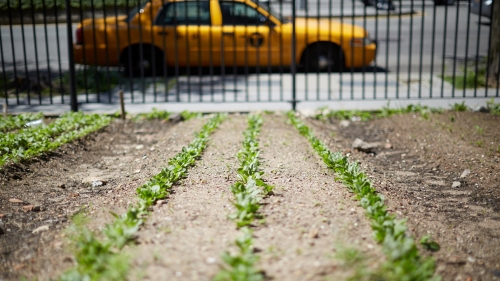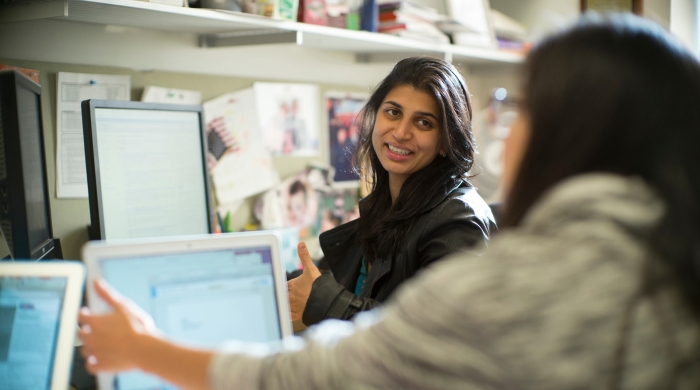Anne McBride graduated with her PhD in Food Studies in 2017. Read on to learn more about Anne's professional background, doctoral experience, and her current role at the Torribera Mediterranean Center.
What was your professional background before coming to NYU?
I was working as a cookbook editor when I started in the master’s program, then I was managing communications for a culinary school when I entered the PhD program.
What inspired you to pursue your PhD and research interests?
I knew the day I graduated with my bachelor’s degree that I’d eventually get a PhD – initially I thought in sociology, and nothing having to do with food. I wasn’t done learning! So continuing my education was always a big motivation. As I began my career in the culinary world in New York, I became more and more interested in making food the center of my studies too, and when I started exploring the program at NYU, knew that I had found my home. I continued working while pursuing my PhD, so my research interests have been shaped by my professional ones as well, interrogating the changing role of the chef in the 21st century and, correspondingly, changing ideas around expertise. I seek to contextualize the global impact of chefs.
What was the most influential part of your experience in the PhD program?
Without a doubt, the hours spent with my cohort discussing, debating, and dissecting readings and our own work. When I started, the program was still very small, so it was possible to fit around a table at a restaurant, order lots of food and lots of wine, and get lost in conversations that were rigorous, animated, challenging, and also incredibly fun, and that deeply shaped who I became as a scholar.
Can you tell me about the work you’re doing now?
In a variety of ways, I work at the intersection of theory and practice, between academia and the culinary world. I am the deputy director of the Torribera Mediterranean Center, a joint project of the Culinary Institute of America (CIA) and the University of Barcelona. We develop programs (including editorial projects, conferences and seminars, university classes, educational modules, presentations, etc.) that translate the well-established science around the Mediterranean Diet into actionable strategies for the restaurant and food industry. I also organize a variety of thought leadership programs, including Worlds of Flavor for the CIA, working with chefs, scholars, scientists, writers from all over the world. So a lot of my time, in those roles, consists of thinking about how to share and translate knowledge and experience between fields, what needs to be communicated, and how to ensure equity and justice around knowledge acquisition and diffusion. I write cookbooks (and articles when I have the time or opportunity) as well, and last but certainly not least, I am slowly continuing my research to expand elements of my dissertation – and a whole lot more – into a book.
What would you consider to be the greatest accomplishment(s) of your career so far?
Obtaining my PhD. Or perhaps, rephrasing, obtaining my PhD while simultaneously building my career. I always knew that I would eventually finish, but it was hard. It took a lot of sacrifices, including for my husband, who deserves a lot of credit for his bottomless support.
Do you have any advice for folks interested in a similar career path?
I don’t have a very typical career path... the lessons or advice I extract from it include to always say yes until you reach the point of your career when it becomes important to learn to say no so as to preserve your bandwidth for projects you will regret not taking on – still working on that part myself! A lot of what I do is based on relationships; so, treating people kindly, listening with humility and openness to what they have to teach you, and finding ways to pay forward or pay back what you receive are essential.
Is there anything else you’d like to share?
Your main goal, when pursuing a graduate degree, should be to increase your knowledge. There’s no certainty around anything else.
About the PhD in Food Studies

Nutrition and Food Studies
411 Lafayette Street, 5th Floor
New York, NY 10003
Phone: 212-998-5580
Email: nutrition@nyu.edu

